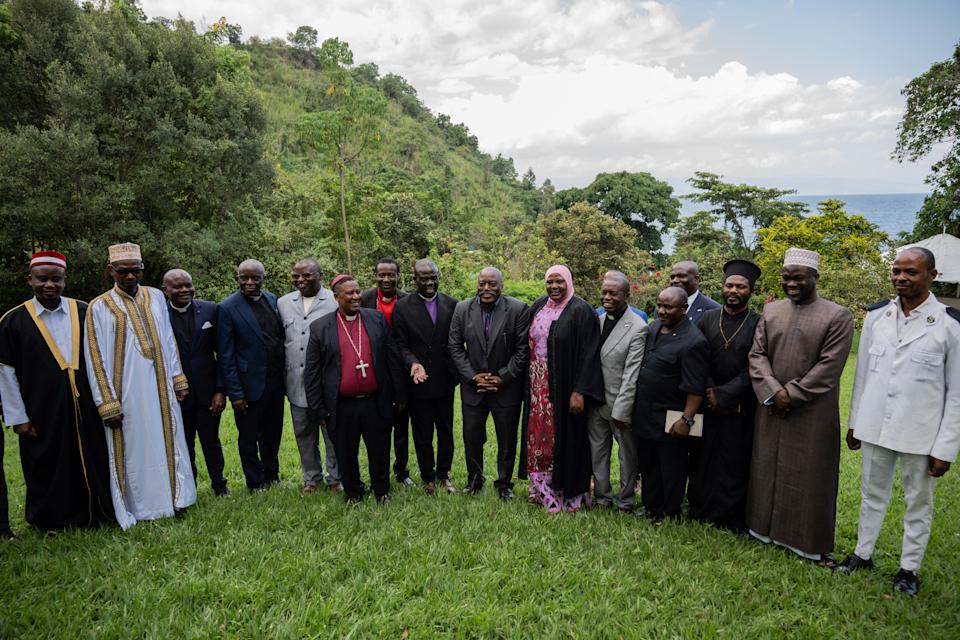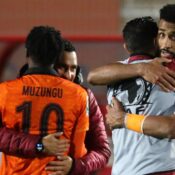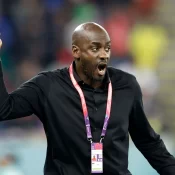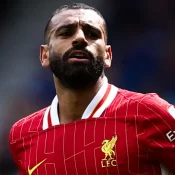
Religious leaders meet with former Congolese President Kabila in the east of DR Congo
Just three days after returning to Goma, the capital of North Kivu Province, following a six-year self-imposed exile, former Congolese President Joseph Kabila spent Thursday, May 29, meeting with members of the Christian faiths in rebel-controlled eastern Democratic Republic of the Congo.
Rebel spokesperson Lawrence Kanyuka of the Alliance Fleuve Congo (AFC/M23) referred to Kabila as the “Honorary President” in a post on X announcing the meeting.
The former president’s return was verified on Monday, May 26, by the AFC/M23 rebels in possession of Goma, the capital of the eastern Democratic Republic of the Congo.
AFC/M23 political leader Corneille Nangaa wrote on X on Monday morning, “We are happy to see this great political figure return home.” “He made the right decision instead of staying in exile.”
He returned to Goma just two days after accusing the government of President Felix Tshisekedi of a number of evils, including populism, lying, hubris, institutionalization of nepotism and tribalism, and impunity, which weakened national unity and left the nation vulnerable. From 2001 to January 2019, the 53-year-old Kabila controlled the Democratic Republic of the Congo. He was succeeded by Tshisekedi. After a disagreement, Kabila accused Tshisekedi of breaking a deal that had gotten him into power. Kabila is accused by Tshisekedi of supporting the AFC/M23 insurgents.
On May 22, the Senate of the Democratic Republic of the Congo approved a resolution that authorized legal action against Kabila and lifted his immunity as a senator for life.
In addition to having his assets seized, Kabila is facing treason and war crimes allegations from the military high court. Supporters of his claim that the criminal allegations are a “witch hunt.”
Speaking from an unidentified location last week, following his denial of immunity, Kabila referred to Tshisekedi as a “demagogue” and charged him with “institutionalizing nepotism and tribalism, as well as discriminating against and stigmatizing certain segments of our population”.
In February of this year, the former president broke his quiet on the violence. He had earlier accused Tshisekedi of mishandling the situation in eastern Democratic Republic of the Congo and rejected his attempts to place the responsibility on other parties.
His arrival in Goma City may signal a new phase in the war between Tshisekedi and the rebels, who have ruled over large areas of South Kivu province since early 2025, including Bukavu, the provincial capital.
Nangaa, the head of the Congolese electoral commission (CENI) in Kabila’s final years as president, made the statement, “Joseph Kabila is welcome in Goma, the only part of the country where arbitrariness, political persecution, death sentences, tribalism, discrimination, hate speech… do not exist.”
Several delegations and notable figures from various fields have visited Goma since last February. They witnessed the Alliance Fleuve Congo’s (AFC/M23) efforts to bring people and their possessions back into safety.
This January, Goma fell to the M23 rebels, who have been engaged in combat since late 2021. In February, they took control of Bukavu.
In 2012, the rebels took control of Goma for a few days before withdrawing and fleeing. The rebels now hold greater area and have done so for a longer period of time as part of a larger alliance that was established in December 2023 and has considerable backing from Congolese politicians.
The first direct negotiations between the Congolese government and the rebels since 2021 took place in April, facilitated by Qatar. Though the Doha discussions have not yet resulted in an agreement, the two parties declared their commitment to a ceasefire on April 23.
President Paul Kagame and President Félix Tshisekedi of the Congo met with US President Donald Trump’s Senior Advisor for Africa, Massad Boulos, on May 15 to review the progress of a planned peace deal that is anticipated to be completed in June. The FDLR, a group supported by Kinshasa and founded by survivors of the 1994 Genocide against the Tutsi, is one of the main causes of the decades-long insecurity crisis in DR Congo. The expected peace deal aims to address these issues and end the ongoing conflict in eastern DR Congo.
Deputy to Nangaa Bertrand Bisiimwa stated that they were no longer requesting anything from the Kinshasa government during a press conference held in Goma on Sunday.
According to Bisiimwa, “We are now a liberation movement; we have left the stage of demands.”
“This means that we have problems that need to be resolved, either with or without Kinshasa, but we do not have a list of demands to be presented to Kinshasa.”
All Categories
Recent Posts
Tags
+13162306000
zoneyetu@yahoo.com



